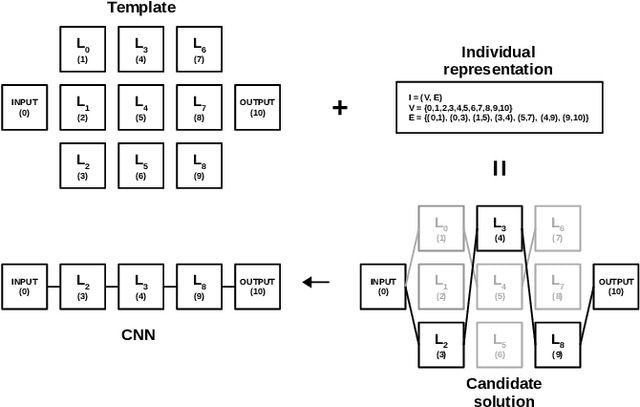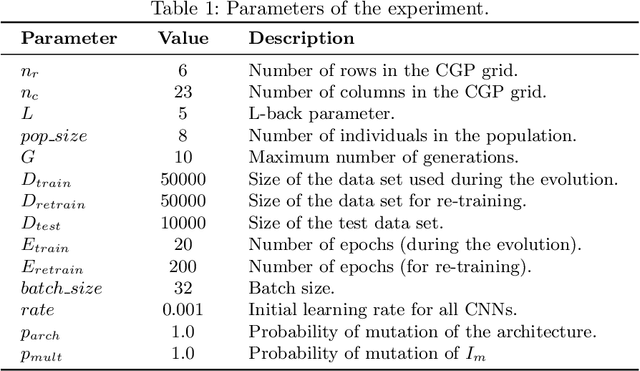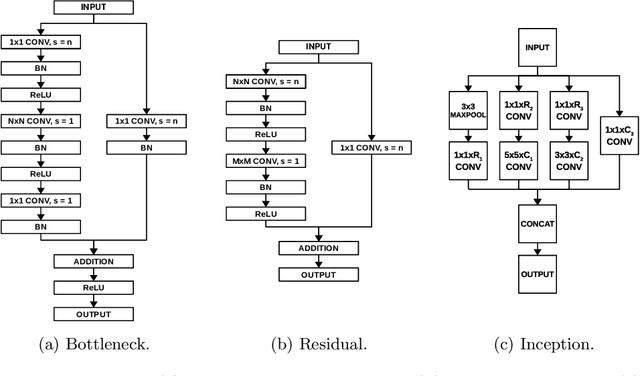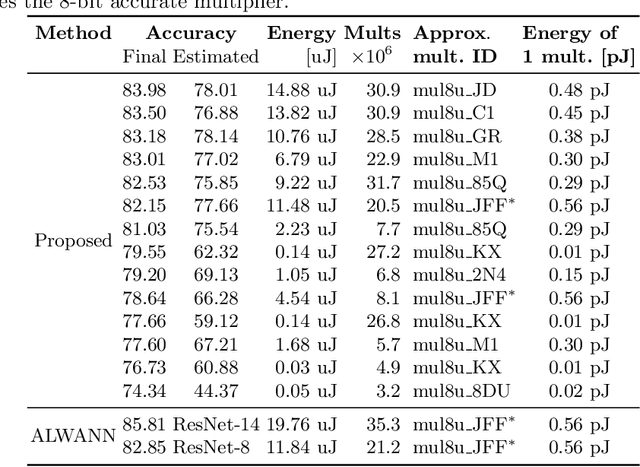Evolutionary Neural Architecture Search Supporting Approximate Multipliers
Paper and Code
Jan 28, 2021



There is a growing interest in automated neural architecture search (NAS) methods. They are employed to routinely deliver high-quality neural network architectures for various challenging data sets and reduce the designer's effort. The NAS methods utilizing multi-objective evolutionary algorithms are especially useful when the objective is not only to minimize the network error but also to minimize the number of parameters (weights) or power consumption of the inference phase. We propose a multi-objective NAS method based on Cartesian genetic programming for evolving convolutional neural networks (CNN). The method allows approximate operations to be used in CNNs to reduce the power consumption of a target hardware implementation. During the NAS process, a suitable CNN architecture is evolved together with approximate multipliers to deliver the best trade-offs between the accuracy, network size, and power consumption. The most suitable approximate multipliers are automatically selected from a library of approximate multipliers. Evolved CNNs are compared with common human-created CNNs of a similar complexity on the CIFAR-10 benchmark problem.
 Add to Chrome
Add to Chrome Add to Firefox
Add to Firefox Add to Edge
Add to Edge